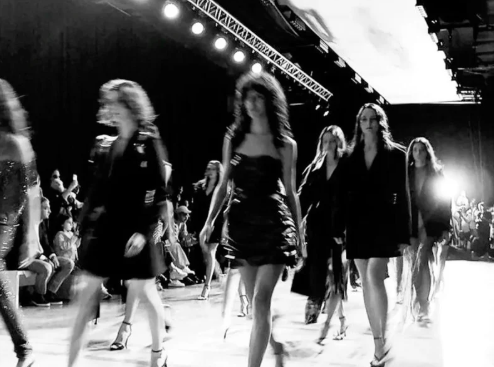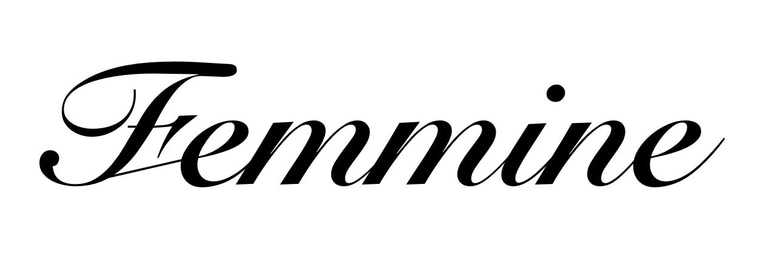Theatrical Runway & The Art of Storytelling
By Hannah Mae Webster
LIFESTYLEHOMEFASHION
Edited by Cece Wilson
8/24/20253 min read


Runway: A Theatrical Craft
Runway holds its status as an intricate craft that has captivated audiences for decades. With a rich performative history, it is fascinating to acknowledge the dramatic and compelling elements of storytelling that have fuelled these theatrical displays, both past and present.
The Birth of the Modern Runway
To understand the development of the runway, we must start at the beginning. The birth of the runway show is widely considered to have taken place in the 19th century, marked by several key moments. The first hint of performance can be traced back to Charles Frederick Worth, the couturier who replaced mannequins with live models to display his designs. This fundamentally altered the relationship between client and dressmaker.
Another important pioneer in the evolution of the runway was Lady Duff Gordon, who introduced a more theatrical approach, incorporating a decorated stage, sound, lighting, and a structured audience.
Since these early revolutionary developments, the runway has undergone significant transformations, leading to the modern spectacle we know today. While some might argue that a runway show is merely a display of clothing, many fashion houses have introduced striking collections in unforgettable ways.
Mugler and McQueen: Memorable Runway Moments
Thierry Mugler
Thierry Mugler's glorious reign over the runway remains one of the most inspiring and inimitable highlights of the 20th century. His jaw-droppingly surreal designs and awe-inspiring productions forged an extraordinary legacy. Mugler had a flair for the absurd and the fantastical—two elements that frequently dominated his runway presentations.
Autumn/Winter 1995
Staged at the iconic Cirque d'Hiver in Paris, Mugler's 20th anniversary show was beyond grand. True to his explorations into futurism, the show featured the unforgettable Cyborg suit. The surrealism did not end there; the dazzling Birth of Venus ensemble was ethereally presented in a scene of theatrical splendour.
Spring/Summer 1997
The Les Insectes collection offered an intriguing fantasy that merged the worlds of insects and humans—absurdity at its most elegant. Models marched up and down the runway in bug-like glasses and antennae, as jarring music amplified the otherworldly mood.
Mugler favoured dramatic, narrative-led shows that captivated audiences and stimulated deeper conversation. His futuristic visions were perfectly matched with bold, extravagant productions. Other notable shows include AW 1997: Les Chimères, SS 1992, and AW 1984.
Alexander McQueen
Alexander McQueen was the epitome of creative genius. He disrupted the fashion industry and blurred the boundaries of perception. Known for his provocative runway moments, McQueen redefined the idea of fashion while addressing weighty, often painful, subjects. It is difficult to regard his shows as mere fashion presentations.
Spring/Summer 2010
McQueen’s Plato’s Atlantis remains one of his most thought-provoking productions. The futuristic show featured snakes, robotic cameras, and surreal visuals. Inspired by the myth of a lost island submerged beneath the ocean—causing humans to evolve underwater—this bizarre narrative formed the foundation of what became McQueen's final runway show before his death in February 2010.
Spring/Summer 2001
The SS 2001 show Voss delved into the darker aspects of fashion and beauty. Thought to reflect McQueen’s own struggles, Voss offered a suffocating and profound meditation on self-perception. Before the show began, the audience was forced to confront their own reflections in a mirrored box. Natural elements—plants, flowers, and animals—were threaded throughout, as McQueen presented a turbulent interpretation of beauty and the harsh truths of nature.
The Significance of Storytelling
Some of the most powerful runway shows have been driven by strong narratives. The true impact of a show often lies in its ability to move and provoke an audience, much like theatre or film. Emotions are stirred by those productions that prompt meaningful discussion and reflection. As seen in the work of Mugler and McQueen, elements of futurism, fantasy, and dystopia have had a profound and enduring influence, far beyond the realm of fashion alone.
For more, explore fashion, travel, and lifestyle insights here.
Subscribe to our newsletter!
info@femmine.co.uk
